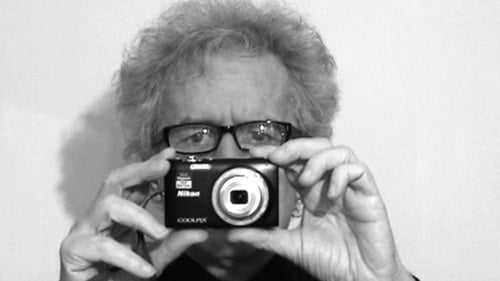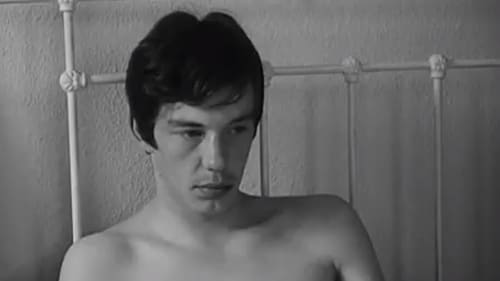
Self
In conversations with his friends and colleagues, among them Bernd Upnmoor, Helmut Herbst, Alexander Kluge, Klaus Wyborny, Daniel Kothenschulte and Helge Schneider, Ulrike Pfeiffer takes us on a journey into the broad expanse of Nekes' cabinet of wonder and his cinematic works. At the same time, this documentary provides an insight into the history of experimental film in Germany.

Director
'Cathedral of New Emotions' by Helmut Herbst (Germany, 2006) based on Herbst's 'Die phantastische Welt des Matthew Madson'(Germany, 1970-74 - Animation)

Himself
A documentary about the 'critical mass', the Film Coop, a group of young filmmakers in Hamburg during the 1960s - a small group far from the Mainstream or the New German Cinema.

N°262
Reel 27 of Gérard Courant’s on-going Cinematon series.

Director
In the first half of the 19th century there was a revolt in the central state of Hesse, led by Georg Büchner (Gregor Hansen), the well-known German writer, and a fellow rebel, Pastor Weidig (Franz Wittich). Büchner wrote a kind of declaration of peasant rights against the tyranny of the landholders of the time, and once that declaration ("Der Hessische Landbote") was made public, Büchner escaped to Strasbourg, and then to Zurich where he was killed in 1937, at the age of 23. Pastor Weidig was captured, sent to prison, tortured, and killed in prison. The revolution the two men had hoped for died on the vine due to an informer -- a planned uprising was brutally squelched -- and the peasants had to bide their time for another 12 years before the 1848 Revolution would bring them some of the rights demanded in Büchner's pamphlet.

Cinematography
Documentary by Helmut Herbst.

Writer
Documentary by Helmut Herbst.

Director
Documentary by Helmut Herbst.

Director
Documentary about the film pioneer Guido Seeber

N°262
Синематон» - 201-часовой фильм французского режиссёра Жерара Куранта. Он считается одним из самых длинных фильмов когда-либо выпущенных. Создающийся более 35 лет (с 1978 по 2018), он состоит из серии 3027 беззвучных виньеток, каждая продолжительностью по 3 минуты 25 секунд, в которых показываются различные знаменитости, художники, журналисты и друзья режиссёра, каждый делающий то, что он хочет, за отведённое время. В фильме показаны режиссёры: Барбет Шредер, Нагиса Осима, Фолькер Шлендорф, Кен Лоуч, Юсеф Шахин, Вим Вендерс, Джозеф Лоузи, Жан-Люк Годар, Сэмюэл Фуллер и Терри Гиллиам; гроссмейстер Жоэль Лотье и актёры Роберто Бениньи, Стефан Одран и Жюли Дельпи. Терри Гиллиам показан поедающим купюру в 100 франков. Сэмюэл Фуллер курит сигару. Своим любимым героем фильма Жерар Курант считает семимесячного ребёнка.

Writer
A documentary which looks at Heartfield primarily as a political activist working in a specific historical context. It demonstrates this relationship by the use of documentary material, such as archive footage of inter-war Germany, in juxtaposition with Heartfield's works.

Director
A documentary which looks at Heartfield primarily as a political activist working in a specific historical context. It demonstrates this relationship by the use of documentary material, such as archive footage of inter-war Germany, in juxtaposition with Heartfield's works.

Animated feature by Helmut Herbst.

Writer
Animated feature by Helmut Herbst.

Director
Animated feature by Helmut Herbst.

Editor
This documentary concerns the contributions of German artists to the Dadaist movement. Created in 1916, the organizers rejected previous convention and delighted in nihilistic satire in painting, sculpture and literature. Comparisons are made between the movement and the political and social upheaval at the time of the release of this feature (1969).

Cinematography
This documentary concerns the contributions of German artists to the Dadaist movement. Created in 1916, the organizers rejected previous convention and delighted in nihilistic satire in painting, sculpture and literature. Comparisons are made between the movement and the political and social upheaval at the time of the release of this feature (1969).

Writer
This documentary concerns the contributions of German artists to the Dadaist movement. Created in 1916, the organizers rejected previous convention and delighted in nihilistic satire in painting, sculpture and literature. Comparisons are made between the movement and the political and social upheaval at the time of the release of this feature (1969).

Director
This documentary concerns the contributions of German artists to the Dadaist movement. Created in 1916, the organizers rejected previous convention and delighted in nihilistic satire in painting, sculpture and literature. Comparisons are made between the movement and the political and social upheaval at the time of the release of this feature (1969).

Sound

Director
A day in a young slacker's life in Hamburg, Germany.

Producer
A cloud of black dust, one of white dust, and the world.

Writer
Short film by Helmut Herbst.

Director
Short film by Helmut Herbst.

Director
Short film by Helmut Herbst.

Editor
Short by Helmut Herbst.

Cinematography
Short by Helmut Herbst.

Writer
Short by Helmut Herbst.

Director
Short by Helmut Herbst.










